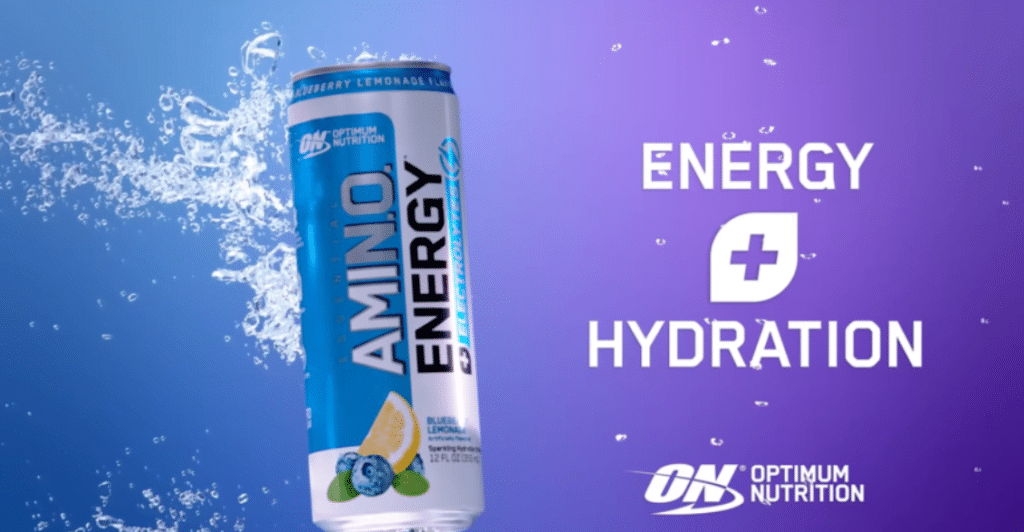Is Amino Energy Good for You?
Yes, Amino Energy can be good for you if used appropriately. It offers an energy boost and supports muscle recovery, but it's important to consider caffeine sensitivity and the presence of artificial ingredients. Always use it in moderation and align it with your health goals.If you want to learn more about Amino Energy, feel free to read on.
What Is amino acids?
Amino acids are the building blocks of protein, essential for forming proteins in the body. Read on to find Understanding Amino Acids
Amino acids are fundamental components critical for protein synthesis in the body. They are organic compounds composed of oxygen, carbon, hydrogen, and nitrogen, essential for various biological functions.
Types of Amino Acids
Amino acids are categorized into three groups:
- Essential amino acids
- Conditionally essential amino acids
- Nonessential amino acids
Essential amino acids must be obtained through diet as the body cannot produce them. Foods high in protein are crucial for supplying these nutrients.

Conditionally essential amino acids are generally nonessential but become necessary during periods of stress or illness. Nonessential amino acids, however, are synthesized by the body regardless of dietary nutrition.
Roles of Amino Acids in the Body
Amino acids play several key roles, including:
- Enhancing the digestion and absorption of food
- Supporting the repair and growth of body tissues
- Serving as an energy source
- Contributing to muscle development
- Producing hormones such as epinephrine, norepinephrine, thyroid, and growth hormones
- Generating crucial neurotransmitters like dopamine and serotonin, which help regulate numerous functions in the brain and nervous system
In total, there are 20 amino acids, with 11 produced internally. The remaining nine essential amino acids need to be ingested through a nutritious diet to maintain optimal health.
Also Read: Is Xyience energy drink good for you?Overview of Amino Acid Supplements
Amino acid supplements are products designed to provide one or more of the nine essential amino acids that the human body cannot synthesize on its own. These essential nutrients include:
- Lysine
- Leucine
- Tryptophan
- Histidine
- Isoleucine
- Methionine
- Phenylalanine
- Threonine
- Valine
Specific Types and Uses
Although Arginine is vital for children, it is often excluded from these supplements as it is not considered essential for adults.
Special hypoallergenic infant formulas, also known as elemental formulas, are available for infants with specific medical needs or severe protein allergies. These formulas are enriched with amino acids alongside other vital nutrients.
Branched-chain amino acids (BCAAs), comprising leucine, isoleucine, and valine, are particularly common in over-the-counter amino acid supplements.
These supplements are readily available in various forms, such as tablets, capsules, and powders that can be dissolved in water to create an energy-boosting drink.
Also Read: Is Aquafina Safe to Drink? (2024 Safety Update)When are Supplements Necessary?
For most people, a balanced diet that includes meat, fish, dairy, eggs, and a mix of vegetables and grains typically provides all the necessary protein and amino acids required for health.
However, in certain situations such as cancer treatment or periods of intense stress, additional amino acid supplements might be recommended to support overall well-being.
Key Insights on Amino Acid Supplements
Amino acid supplements can offer various health benefits, but like any supplement, they come with potential risks. Consulting with a healthcare provider is crucial to determine if these supplements could enhance your well-being.
Health Benefits of Amino Acid Supplements
- Muscle Health: Amino acids are crucial for muscle development and strength. They help balance muscle growth and atrophy.
- Sports Performance: Supplementing with essential amino acids may boost sports performance and aid in recovery by increasing muscle growth when consumed around workout times.
- Blood Sugar Regulation: Amino acids can help manage blood sugar levels, which may benefit those with type 2 diabetes.
- Skin Health: Taking amino acid supplements may improve skin moisture and overall condition.
Potential Risks and Side Effects
While amino acid supplements can be beneficial, they are not without side effects, especially if taken excessively:
- Nausea
- Vomiting
- Bloating
- Cramps
- Diarrhea
- Dehydration
- Headaches
- Pain
These supplements can also affect blood sugar levels and should be avoided around surgical procedures. It’s recommended to avoid supplements that contain only a single amino acid due to the potential for adverse effects. Notable examples include methionine, cysteine, and histidine.
Considerations and Cautions
Amino acid supplements can interact with medications, such as those for diabetes and thyroid conditions.
Always consult with your healthcare provider before starting any new supplement regimen. Additionally, unlike prescription drugs, amino acid supplements are not strictly regulated by the FDA.
It’s important to choose products from reputable manufacturers and read labels carefully to ensure safety and quality.

How Amino Energy Provides Essential Amino Acids?
Amino Energy is a dietary supplement designed to provide a convenient and efficient way to obtain essential amino acids. It contains ingredients that help support muscle growth, enhance exercise performance, and aid in post-workout recovery.
Available in forms like powders and ready-to-drink beverages, it’s easy to incorporate into your daily routine.
This supplement offers several benefits but also comes with risks and side effects; therefore, it’s recommended to consult a healthcare professional before starting any new dietary supplementation.
Incorporating Amino Energy into your diet can be vital for overall health and well-being, providing an option for obtaining these nutrients efficiently and conveniently.
However, making informed decisions and seeking professional advice before using supplements is crucial.
The Impact Of Caffeine In Amino Energy
The main ingredient in Amino Energy, caffeine, is known for its stimulant effects which help increase alertness and reduce fatigue.
The amount of caffeine can vary depending on the flavor and serving size, but it typically ranges from 100-200mg per serving.
While there are benefits like improved mental focus, increased endurance, and enhanced performance in physical activities, excessive consumption can lead to negative side effects such as jitters, anxiety, and disrupted sleep.

Ingredients of Amin.O. Energy Drink
- Caloric Content: The drink contains only 5 calories per 12 fl. oz can, making it a low-calorie beverage option.
- Caffeine: It has 100mg of caffeine, considered an optimal amount for an energy boost without being excessive.
- Amino Acids: There are 5g of amino acids, contributing to muscle recovery and endurance (details in the Amino Blend section).
- Fats and Carbohydrates: This drink has 0g total fat, 0g saturated fatty acids, and 1g total carbohydrate, making it fat-free and low in carbs.
- Sugars and Proteins: It contains 0g total sugar and 0g protein, aligning with its low-calorie and sugar-free profile.
- Salt: The drink includes 100mg of salt, contributing to its electrolyte content.
- Other Ingredients:
- Carbonated water forms the base of the drink.
- Natural and artificial flavors are added for taste.
- Citric and malic acid are used for tartness and flavor enhancement.
- Sodium citrate acts as a buffer to control acidity.
- Potassium sorbate and potassium benzoate are used as preservatives.
- Sucralose and acesulfame potassium (in grape flavor) provide sweetness without added sugars.
- Potassium chloride and magnesium phosphate are included for their electrolyte properties.
- Tartaric acid is an additional component, specifically in grape and strawberry flavors.
Exploring the Diverse Flavors of Amino Energy: A Taste for Every Palate
- Blue Raspberry: A tangy and sweet flavor that resembles the taste of ripe blue raspberries, offering a refreshing and fruity experience.
- Watermelon: This flavor captures the essence of juicy watermelons, providing a sweet and slightly tangy taste that’s reminiscent of summer.
- Grape: Rich and reminiscent of dark grapes, this flavor offers a balance of sweetness and tartness, akin to grape juice or grape candy.
- Green Apple: Crisp and tart, the Green Apple flavor is similar to biting into a fresh green apple, with a balance of sweetness and acidity.
- Fruit Fusion: A tropical and citrus blend that combines flavors of various fruits, offering a sweet and vibrant taste experience.
- Orange Cooler: Tastes like a refreshing orange drink, with a sweet citrus flavor that’s both zesty and invigorating.
- Lemon Lime: A classic combination of lemon and lime, this flavor is zesty, tangy, and has a slightly sour kick, much like traditional lemon-lime sodas.
- Peach Lemonade: Sweet peach melds with the tartness of lemonade, creating a flavor that’s both refreshing and reminiscent of a summer beverage.
- Pineapple: Tropical and sweet, this flavor captures the essence of ripe pineapple, offering a juicy and vibrant taste.
- Strawberry Lime: A sweet strawberry flavor mixed with a zesty lime twist, combining the best of berry sweetness with citrus tartness.

Research Findings On Amino Acids And Immune Cell Function
Recent studies highlight the specific effects of amino acids like glutamine and arginine on the immune system. Glutamine is shown to improve the function of white blood cells, essential for fighting off infections, while arginine enhances the activity of macrophages, crucial in engulfing and destroying bacteria and viruses.

These findings support the importance of amino acids in maintaining health but should not be relied upon as the sole method of protection.
A well-balanced diet, regular exercise, adequate sleep, and stress management are key for a strong immune system, underscoring the benefit of a comprehensive approach to overall health.
FAQS: Is Amino Energy Good for you?
Are there any risks associated with taking amino acid supplements?
Yes, taking amino acid supplements when they are not needed can be harmful. Consuming too much protein can be just as detrimental as consuming too little. Ideally, a balanced diet with the recommended daily intake of protein should provide all the essential amino acids your body needs.
What is amino energy used for?
Amino Energy combines amino acids and caffeine to support energy, focus, performance, and muscle recovery. It is commonly used to enhance routine sports activities.
Q: Is amino energy good for weight loss?
Amino energy products blend amino acids with stimulants such as caffeine to support muscle recovery, enhance energy levels, and potentially increase metabolism, all of which may contribute to weight loss.
Q: Is amino energy good for pre-workout?
Optimum Nutrition’s Amino Energy is a must-have for those seeking a reliable and effective pre-workout supplement. Its blend of energy-boosting ingredients and muscle-recovery benefits, along with delicious flavors, makes it a standout choice in a crowded market.
Q: Can amino acids affect the heart?
In addition to potential side effects like gastrointestinal distress, headaches, cramps, and pain, prolonged use of amino acid supplements may also increase the risk of atherosclerosis—a condition that hardens arteries and heightens the likelihood of stroke and heart disease.
Q: Is amino energy bad for you and your body?
Amino Energy offers benefits like an energy boost and support for muscle recovery. However, like any supplement, it should be used in moderation to avoid potential risks and side effects from excessive consumption. Being mindful of your intake and prioritizing a balanced diet and healthy lifestyle alongside supplementation is essential for maintaining overall health.
Q: Is amino energy bad for your skin?
Nutrients and Amino Acids play an essential role in maintaining the skin’s health and qualities, including the ability to repair and their healing properties. They can help protect the skin against harsh sunlight. There’s no direct evidence to suggest that Amino Energy is bad for your skin; in fact, amino acids could promote skin health when part of a balanced diet.
Q: Is amino energy good?
Optimum Nutrition’s Amino Energy is a must-have for anyone seeking a reliable and effective pre-workout supplement. Its blend of energy-boosting ingredients and muscle-recovery benefits, offered in delicious flavors, makes it a standout choice in a crowded market.
Q: Is amino energy healthy?
Optimum Nutrition’s Amino Energy, with its low-calorie, low-caffeine, and zero-sugar composition, presents a healthier alternative to traditional energy drinks. Its formulation offers a sustainable energy boost without the common drawbacks of high-sugar and high-caffeine beverages, perfectly aligning with a health-conscious lifestyle.